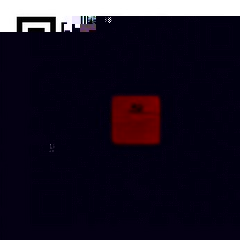
個人信息:
姓名:商逸澹 職稱:副教授
專業:生物醫學工程 學曆層次:博士
辦公室地點:8号樓B617
辦公電話:13871555478
電子郵箱:yidan.shang@sues.edu.cn
研究方向:計算與實驗流體力學,呼吸道流體力學與藥物遞送,消化道流體力學,螺旋槳葉片流體優化
主講課程:《計算流體力學》,《熱工學基礎》,《機器視覺的基礎與應用》,《先進航空裝備與航空工業發展》,《飛行安全》
個人簡介:(教育背景、工作經曆)
教育經曆:
2012.08-2017.09 皇家墨爾本理工大學,工程學院 工學博士
2008.09-2012.07 中國科學技術大學,物理學院 理學學士
工作經曆:
2024.01–至今, BETVLCTOR伟德官方网站,BETVLCTOR伟德官方网站,副教授
2020.10–2023.12, BETVLCTOR伟德官方网站,航空運輸學院,副教授
2020.10–2023.05, 皇家墨爾本理工大學,工程學院,Adjunct ResearchFellow (Lv. B)
2018.01–2020.10, BETVLCTOR伟德官方网站,航空運輸學院,兼職副教授
2017.09–2020.09, 皇家墨爾本理工大學,工程學院,Research Officer(Lv. A)
主要科研項目:
主持縱向項目
1. 2024–2027,國家級縱向,國家自然科學基金面上項目,吸入制劑在呼吸道中的動力學研究及不同人群的藥物遞送優化,49萬,主持1/3。(在研)
2. 2024,省部級縱向,上海市高水平地方高校項目,醫療機器人智能流體科研平台,40萬,授權主持1/1。(結題)
3. 2024,省部級縱向,上海市高水平地方高校項目-高水平人才團隊,流體力學專用仿真平台,20萬,授權主持1/1。(結題)
4. 2024,校級縱向,“外專計劃”高端外國專家項目,8萬,主持1/1。(結題)
5. 2020–2023,省部級縱向,上海市教委,上海市“青年東方”人才項目,60+ 60萬學校配套,主持1/1。(結題)
6. 2020–2021,校級縱向,職業安全健康北京市重點實驗室,超細顆粒物CFD呼吸道沉積模拟評估軟件的開發及優化,5萬,主持1/1。(結題)
7. 2019–2021,國家級縱向,國家自然科學青年基金,生産性粉塵的幾何特征及理化性質對其在人體呼吸道内的動力學特征的影響,21萬,主持1/2。(結題)
8. 2017,省部級縱向,澳洲科學院和維省國土資源部,MathematicalAI modelling of powerline-fault vegetation detection challenge(利用AI建模來探測造成高壓線短路起火的植物類型),1萬澳元,主持1/2。結題。
主持和參與橫向項目
1. 2025–2028,橫向,複旦附屬徐中心醫院,膽胰管流體力學研究和分析平台建設,40萬,主持1/2。(在研)
2. 2025–2026,校企合作橫向,塵埃等離子體的流體性質研究及等離子體空氣消毒設備的流體力學優化設計,160萬,主持1/2。(在研)
3. 2024–2025,校企合作橫向,蘇州淞桦航空裝備有限公司,重型無人機升力系統的流體力學仿真和結構優化,30萬,主持1/1。(在研)
4. 2024–2025,校企合作橫向,嘉興淞棋複合材料有限公司,飛行汽車涵道螺旋槳翼型流體力學仿真與優化,10萬,主持1/1。(在研)
5. 2023–2024,校企合作橫向,長風藥業有限公司,新型鼻噴裝置的流體力學解析與優化,20萬,主持1/1。(在研)
6. 2022–2024,校企合作橫向,甘肅方正節能科技服務有限公司,規模化生物天然氣工程關鍵技術研究與應用,70萬,參與3/4。
7. 2022–2023,校企合作橫向,清華大學,非能動餘熱系統T型接頭管與變徑管組合型式的内旋流動的實驗測量和計算分析,15.8萬,參與3/4。
主要科研成果:(代表性論文、專利、著作等)
Google Scholar: https://scholar.google.com.au/citations?hl=en&user=21akawUAAAAJ&view_op=list_works
20 Career-BestResearch Outputs (sorted by year):
#: CorrespondingAuthor, *: Co-First Author
[1] Xueren Li*,Xiaojian Ni*, Yidan Shang#, Houbao Liu# etal. (2024), ‘The impact of choledochal cysts on bile fluid dynamics: Aperspective using computational fluid dynamics and surface mapping technique’,Physics of Fluids, vol. 36, pp. 061904 (Featured Article, IF=4, 中科院二區)
[2] Renquan Tu, YidanShang#et al. (2024), ‘Optimizing cabin air inlet velocities and personal riskassessment: Introducing the Personal Contamination Ratio method for enhancedaircraft cabin infection risk evaluation’, Plos One, 19(9), pp. e0309730 (IF =4)
[3] YidanShang,Jingliang Dong et al. (2022), ‘Detailed comparative analysis of environmentalmicroparticle deposition characteristics between human and monkey nasalcavities using a surface mapping technique’, Science of The Total Environment,vol. 853, pp. 158770, (IF = 8, 中科院一區,cited 8 times)
[4] YidanShang,Jingliang Dong et al. (2022), ‘An improved numerical model for epidemictransmission and infection risks assessment in indoor environment’, Journal ofAerosol Science, vol. 162, pp. 105943, (IF = 4, cited 32 times)
[5] YidanShang,Yao Tao et al. (2021), ‘Deposition features of inhaled viral droplets may leadto rapid secondary transmission of COVID-19’, Journal of Aerosol Science, vol.154, pp. 105745, (IF = 4, cited 14 times)
[6] YidanShang,Rui Chen et al. (2021), ‘Quantification of long-term accumulation of inhaledultrafine particles via human olfactory-brain pathway due to environmental emissions– a pilot study’, NanoImpact, vol. 22, pp. 100322, (IF = 5, cited 17 times)
[7] Yidan Shang, KiaoInthavong et al. (2021), ‘Prediction of nasal spray drug absorption influencedby mucociliary clearance’, PloS One, vol. 16, no. 1, pp. e0246007, (IF = 4,cited 40 times)
[8] KiaoInthavong, Yidan Shang et al. (2020), ‘Characterizationof nasal irrigation flow from a squeeze bottle using computational fluiddynamics’, International Forum of Allergy & Rhinology, vol. 10, no. 1: p.29-40, (IF = 7, 中科院二區, cited27 times)
[9] YidanShang,Kiao Inthavong et al. (2019), ‘Development of a computational fluid dynamicsmodel for mucociliary clearance in the nasal cavity’, Journal of Biomechanics,vol. 85, pp. 74–83, (IF = 3, cited 42 times)
[10] YidanShang,Jingliang Dong et al. (2019), ‘Detailed computational analysis of flow dynamicsin an extended respiratory airway model’, Clinical Biomechanics, vol. 61:105-111. (IF = 2, cited 58 times)
[11] YidanShang,Kiao Inthavong et al. (2019), ‘Numerical assessment of ambient inhaled micronparticle deposition in a human nasal cavity’, Experimental and ComputationalMultiphase Flow, vol. 1, pp. 109-115. (IF=4, 中科院二區, cited 30 times)
[12] Lin Tian, YidanShanget al. (2019), ‘Correlation of regional deposition dosage for inhalednanoparticles in human and rat olfactory’, Particle and Fibre Toxicology, vol.16, no. 1, (IF = 9, 中科院一區, cited86 times)
[13] Xiangdong Li,YidanShanget al. (2018), ‘Modelling of evaporation of cough droplets in inhomogeneoushumidity fields using the multi-component Eulerian-Lagrangian approach’,Building and Environment, vol. 128, pp. 68–76, (IF = 7, 中科院一區, cited 161 times)
[14] Qike Wang, YidanShanget al. (2018), ‘Antennal scales improve signal detection efficiency in moths’,Proceedings of the Royal Society B: Biological Sciences, vol. 285, no. 1874:20172832, (IF = 4, 中科院一區, cited37 times)
[15] JingliangDong, YidanShanget al. (2018), ‘Partitioning of dispersed nanoparticles in a realistic nasalpassage for targeted drug delivery’, vol. 543(1-2), pp. 83-95, InternationalJournal of Pharmaceutics (IF=5, 中科院二區, cited 28 times)
[16] YidanShang,Jingliang Dong et al. (2017), ‘Computational fluid dynamics analysis of wallshear stresses between human and rat nasal cavities’ European Journal ofMechanics-B/Fluids, vol. 61: 160-169, (IF = 3, cited 16 times)
[17] Lin Tian, YidanShanget al. (2017), ‘A combined experimental and numerical study on upper airwaydosimetry of inhaled nanoparticles from an electrical discharge machine shop’,(IF=9, 中科院一區, cited28 times)
[18] JingliangDong, YidanShanget al. (2016), ‘From the cover: comparative numerical modeling of inhalednanoparticle deposition in human and rat nasal cavities’, ToxicologicalSciences, vol. 152, no. 2: 284-296, (Cover Paper, IF = 4, cited 49 times)
[19] YidanShang,Kiao Inthavong et al. (2015), ‘Detailed micro-particle deposition patterns inthe human nasal cavity influenced by the breathing zone’, Computers &Fluids, vol. 114, pp. 141–150, (IF = 3, cited 113 times)
[20] YidanShang,Jingliang Dong et al. (2015), ‘Comparative numerical modeling of inhaledmicron-sized particle deposition in human and rat nasal cavities’, InhalationToxicology, vol. 27(13): 694-705. (IF = 3, cited 72 times)
專利:
[1] 發明專利,基于CFD的膽道模型構建方法以及微流控系統,申請号2024105797269,申請公布号CN118485018A
主要榮譽:
· 2024,BETVLCTOR伟德官方网站,BETVLCTOR伟德官方网站,年度優秀教師。
· 2022,BETVLCTOR伟德官方网站,新進教師崗前培訓(因疫情推遲),優秀新進教師(共10人)。
· 2019,上海市青年東方 學者。
· 2017,澳洲科學院和維州政府“高壓線短路火災植物類型探測數學建模競賽”冠軍。
· 2016,中國優秀自費留學生獎學金,8千澳元。
· 2016,皇家墨爾本理工大學優秀博士生獎學金,3萬澳元。
· 2013–2015,皇家墨爾本理工大學國際交流獎學金,總計6千澳元。
· 2011,數學競賽美國賽MCMMeritorious Award(一等獎,前5%)。
· 2007,全國物理競賽浙江賽區一等獎,全國三等獎。

